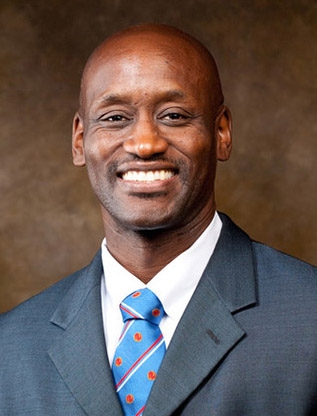Editor's Note: University of Arkansas Provost Charles Robinson sent the provost's annual fall address to the campus community as part of One University Week, stressing the need for continued coordination across campus to address challenges the university faces, most notably COVID-19 and racial climate issues.
Dear U of A faculty and staff:
The past seven months have been some of the most challenging of our careers, but we continue to persevere thanks to your hard work and incredible commitment. I am truly excited and grateful to the chancellor for appointing me to the position of Provost and Vice Chancellor for Academic and Student Affairs. It is a great honor serving the university and working with the many wonderful people who comprise our campus community. I thought that I would use my inaugural fall message as an opportunity to underscore the importance and necessity of improving the coordination of our various campus units for the purpose of achieving greater inclusivity and student success.
The two great crises of 2020, Covid-19 and the racial climate issue, have shown higher education professionals that great global challenges care little about respecting the traditional lines of administrative divisions. In order to manage the potentially devastating impact of these crises, colleges and universities have needed a coordination and nimbleness that made it possible for the academic enterprise to continue. Numerous committees comprised of representatives from across the campus have met regularly to discuss properly equipping, setting-up and cleaning classrooms, purchasing and distributing appropriate PPE, organizing and facilitating training for remote delivery, assisting and supporting our students in their expressions of solidarity for racial and social justice, establishing and implementing plans for food service and campus housing, and testing and coordinating care for the students, faculty and staff who contract the virus.
As we have made needed changes to our fundamental operations, we have had to remain flexible while adjusting to newly discovered challenges. For example, we learned that we needed virtual platforms that could better manage remote delivery and large group meetings, so we negotiated a campus-based Zoom contract. We learned that many of our students did not have adequate access to a computer or internet, so we established a robust laptop loaning program as well as expanded our campus-wide internet access. We learned that teaching Hybrid courses placed pressure on faculty to have to manage both the in-person and virtual learning environments, so we offered to provide chat monitors to faculty to better support the teaching/learning dynamic. We learned that many of our non-managed Greek houses needed help in caring for students infected by the virus, so we changed protocols and created a more seamless way for those students to isolate or quarantine. Also, we learned that some of the names of our buildings and monuments challenged the sense of belonging for some of our students, so we organized forums and special committees to more deeply explore how we might strengthen our commitment to diversity and inclusion. There are dozens of examples like these that have demonstrated our adaptability relative to the great crises of 2020 and our commitment to more effectively meeting the trials forced by their impact.
Over just a few months, our university has had to reinvent itself in order to keep people safe while meeting the needs of our students. As a university, we are tearing down bureaucratic walls. We are fine-tuning our relationship with students, listening more attentively to their concerns and developing better ways to communicate, respond and connect with them. We are constantly reevaluating how best to deliver curricular and co-curricular educational content in an effort to enhance the holistic development of students. We are striving to make our campus one in which every student has access to equal opportunity. It is my sense that when the Covid-19 crisis ends (and it will end), we will have better developed the processes and practices necessary to ushering in a strong rebirth of our total student support and success effort. The reimagining caused by these crises will lay the foundation for cementing a campus culture in which achieving greater student access and success are key drivers for every class, service or campus activity.
In closing, I fully recognize that the past few months have been extremely arduous, fraught with frustration and innumerable complications and physical and emotional challenges. Also, I suspect that we have some difficult days ahead. However, I want you to know that I am very proud of how you have closed ranks as a campus community and demonstrated that indefatigable Razorback spirit. If we stay true to each other and our mission and values, we will one day emerge out of this valley of disappointment and ascend to a high mountain of exhilaration and hope. Our current malaise will one day be but a memory, one that we will use to forge a more vibrant, inclusive and successful future.
Sincerely,
Charles F. Robinson
Provost and Executive Vice Chancellor for Academic and Student Affairs
Professor of History
Contacts
John Post, director of communications
Graduate School and International Education
479-575-4853,
